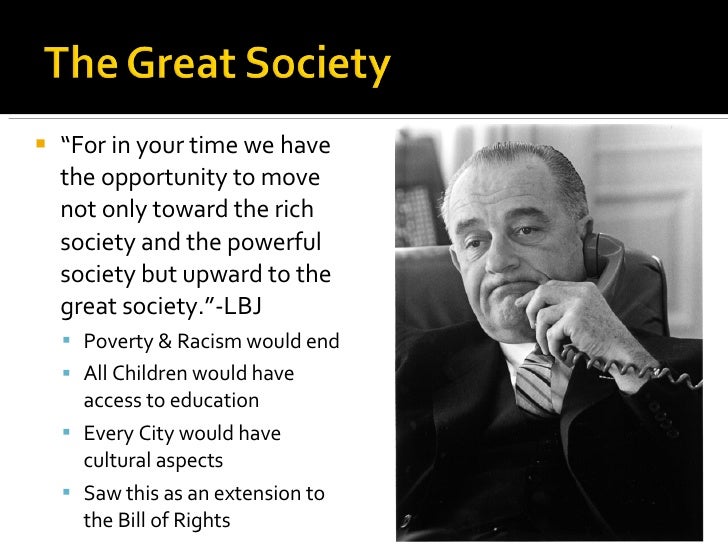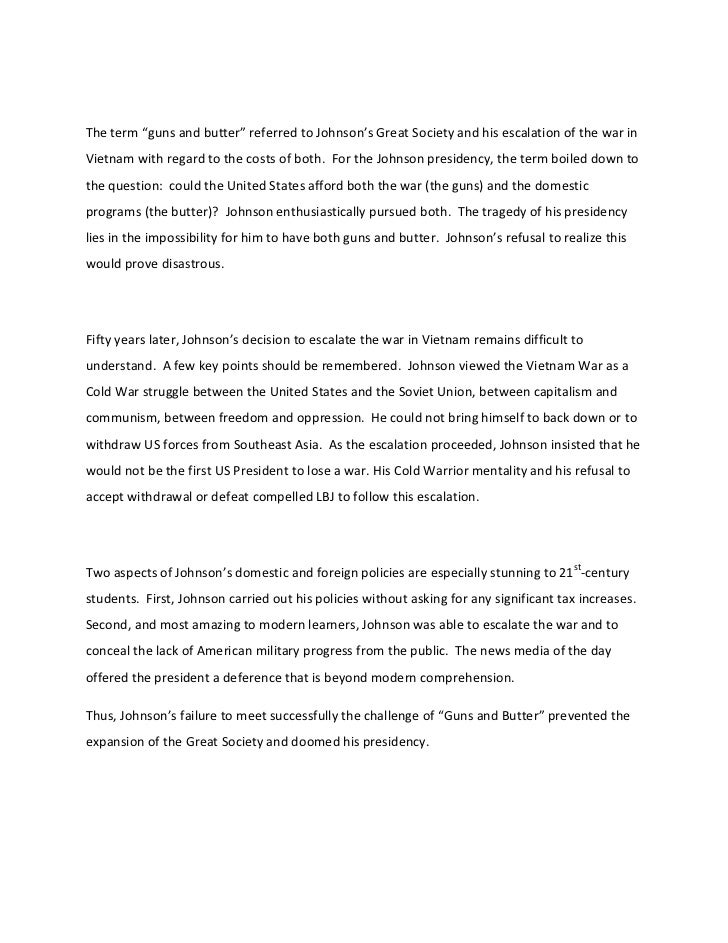Domestic Programs Johnson
. John Kennedy / Джон Кеннеди Kennedy, John Fitzgerald, 1917–63, 35th President of the United States (1961–63), b. Brookline, Mass.; son of Joseph P. W as born on May 29, 1917.

Mar 29, 2018 - A break-in to end all break-ins; In 1971, stolen FBI files exposed the government's domestic spying program., Tribune Company (8 марта 2006). 5 days ago - Miele - Head of Sales Domestic Appliances в Киеве. Полная занятость. Corporate development programs;; Voluntary health insurance;. Политическая программа президента Л. Джонсона [Johnson, Lyndon. The Great Society was a set of domestic programs proposed or enacted in the.
Early Life While an undergraduate at Harvard (1936–40) he served briefly in London as secretary to his father, who was ambassador there. His Harvard honors thesis on the British failure to judge the threat of Nazi Germany was published as Why England Slept (1940). Enlisting in the navy in Sept., 1941, he became commander of a PT boat in the Pacific in World War II. In action off the Solomon Islands (Aug., 1943), his boat, PT 109, was sunk, and Kennedy was credited with saving the life of at least one of his crew. Congressional Career As a Congressman from Massachusetts (1947–53), Jack Kennedy consistently supported the domestic programs of the Truman administration but criticized its China policy.
In 1952, despite the Eisenhower landslide, he defeated Henry Cabot Lodge for a seat in the U.S. Senate, where he served on the Labor and Public Welfare and Foreign Relations committees. In 1953, Kennedy married Jacqueline Lee Bouvier (see Onassis, Jacqueline Kennedy). While recuperating in 1955 from an operation to repair a spinal problem, one of the many serious and often extremely painful illnesses that plagued him from childhood until his death, he wrote Profiles in Courage (1956). The book dealt with American political leaders who defied public opinion to vote according to their consciences; for this work (later revealed to have been written in part by Theodore Sorensen and others) he received the Pulitzer Prize. Although Kennedy narrowly lost the Democratic vice-presidential nomination in 1956, his overwhelming reelection as Senator in 1958 helped him toward the goal of presidential candidacy. Presidency In 1960 he entered and won seven presidential primaries and captured the Democratic nomination on the first ballot.
To balance the ticket, he selected Lyndon B. Johnson as his vice-presidential candidate.

In the campaign that followed, Kennedy engaged in a series of televised debates with his Republican opponent, Richard M. Defeating Nixon by a narrow popular margin, Kennedy became at 43 the youngest person ever, and the first Catholic, elected President. Soon after his inaugural, Kennedy set out his domestic program, known as the New Frontier: tax reform, federal aid to education, medical care for the aged under Social Security, enlargement of civil rights through executive action, aid to depressed areas, and an accelerated space program. He was almost immediately, however, caught up in foreign affairs crises. The first (Apr., 1961) was the abortive Bay of Pigs Invasion of Cuba by Cuban exiles trained and aided by the Central Intelligence Agency. Although the invasion had been planned under Eisenhower, Kennedy had approved it, and was widely criticized.
In June, 1961, the President met in Vienna with Soviet Premier Khrushchev. Hopes of a thaw in the cold war were dashed by Khrushchev's threat that the USSR would conclude a peace treaty with East Germany and thus cut off Western access to West Berlin. In the period of tension that followed, the United States increased its military strength while the East Germans erected the Berlin Wall.
In Oct., 1962, U.S. Reconnaissance planes discovered Soviet missile bases in Cuba.
Kennedy immediately ordered a blockade to prevent more weapons from reaching Cuba and demanded the installations' removal. After an interval of extreme tension when the world appeared to be on the brink of nuclear war, the USSR complied with U.S.
Kennedy won much praise for his stance in the crisis, but some have criticized him for what they held to be unnecessary “brinkmanship.” In Aug., 1963, tension with the USSR was eased by conclusion of a treaty that prohibited the atmospheric testing of nuclear weapons. In Southeast Asia the Kennedy administration perceived a growing Communist threat to the South Vietnamese government; it steadily increased the number of U.S. Military advisers in South Vietnam and for the first time placed U.S. Troops in combat situations. As disaffection in South Vietnam grew, moreover, the United States involved itself in political maneuvering and finally connived at the overthrow (Oct., 1963) of the corrupt South Vietnamese dictator, Ngo Dinh Diem (see Vietnam War).
Within the Western Hemisphere, Kennedy established (1961) the Alliance for Progress, which provided economic assistance to Latin American countries. He also initiated the Peace Corps program, which sent U.S. Volunteers to work in developing countries. Many of Kennedy's domestic reform proposals were either killed or not acted on by Congress.
Кряк для nfs rivals. In the area of civil rights and integration the administration assigned federal marshals to protect Freedom Ride demonstrations and used federal troops in Mississippi (1962) and a federalized National Guard in Alabama (1963) to quell disturbances resulting from enforced school desegregation. In June, 1963, Kennedy proposed civil-rights legislation, but this, like his tax reform program, languished until after his death. Assassination On Nov.
22, 1963, President Kennedy was shot and killed while riding in a motorcade in Dallas, Tex. The Warren Commission, appointed by his successor Lyndon Johnson to investigate the murder, eventually concluded that it was the work of a single assassin, Lee Harvey Oswald. Kennedy's death shocked the nation. Many felt that he would have gone on to achieve greatness as a President. Subsequent revelations, especially concerning his sexual activity, have somewhat dimmed his luster, but the sense that his administration was a youthful, idealistic “Camelot” remains powerful. He is buried in Arlington National Cemetery.

Также в других словарях:. — bezeichnet: ein groß angelegtes gesellschaftspolitisches Reformprogramm der US Regierung unter Präsident Lyndon B. Johnson The Great Society, eine US amerikanische Rockband in den Jahren 1965/66 Diese Seite ist eine Begriffsk Deutsch Wikipedia. — The Great Society was also a 1960s band featuring Grace Slick, and a 1914 book by English social theorist Graham Wallas. The Great Society was a set of domestic programs proposed or enacted in the United States on the initiative of President Wikipedia. — the goal of the Democratic party under the leadership of President Lyndon B. Johnson, chiefly to enact domestic programs to improve education, provide medical care for the aged, and eliminate poverty.
Fair Deal, New Deal, New Frontier. Universalium. — administration of Lyndon Baines Johnson thirty sixth President of the United States Eponyms, nicknames, and geographical games. — the goal of the Democratic party under the leadership of President Lyndon B. Johnson, chiefly to enact domestic programs to improve education, provide medical care for the aged, and eliminate poverty.
Fair Deal, New Deal, New Frontier Useful english dictionary. — Social programs initiated during the Lyndon Johnson administration, 1964– 1968. ► “With the ‘Great Society’ programs of the 1960s, and with robust economic growth, the percentage of Americans in poverty fell from 22.4% to 11.1% by 1973.” American business jargon.
— ▪ Primary Source The programs of most twentieth century American Presidents have been given slogan nicknames, either by the Presidents themselves or by the press, which prefers short phrases that fit headlines. Thus Theodore Roosevelt had Universalium.
— For the political action of President Johnson, see Great Society Infobox musical artist Name = The Great Society Background = group or band caption = Alias = Years active = 1965 1966 Origin = San Francisco, California, United States Genre = Folk Wikipedia. — Жанры психоделический рок, эйсид рок, фолк рок Годы 1965–1966 Страна Википедия.
— war die erste Band von Grace Slick, der späteren Sängerin von Jefferson Airplane. Zur weiteren Besetzung gehörten auch ihr damaliger Ehemann Jerry und ihr Schwager Darby. Die 1965 gegründete Band etablierte sich schnell in der frühen Hippie Szene Deutsch Wikipedia. — The Great! Society Pays d’origine États Unis Genre musical rock psychédélique San Francisco Sound Années d activité 1965 – 1966 Anciens membres Darby Slick Grace Slick David Miner Wikipédia en Français.
Now with engaging National Geographic images, the new edition of the Great Writing series helps students write better sentences, paragraphs, and essays. The new Foundations level meets the., Folse Keith S. Now with engaging National Geographic images, the new edition of the Great Writing series helps students write better sentences, paragraphs, and essays.
The new Foundations level meets the.,. Now with engaging National Geographic images, the new edition of the Great Writing series helps students write better sentences, paragraphs, and essays. The new Foundations level meets the.